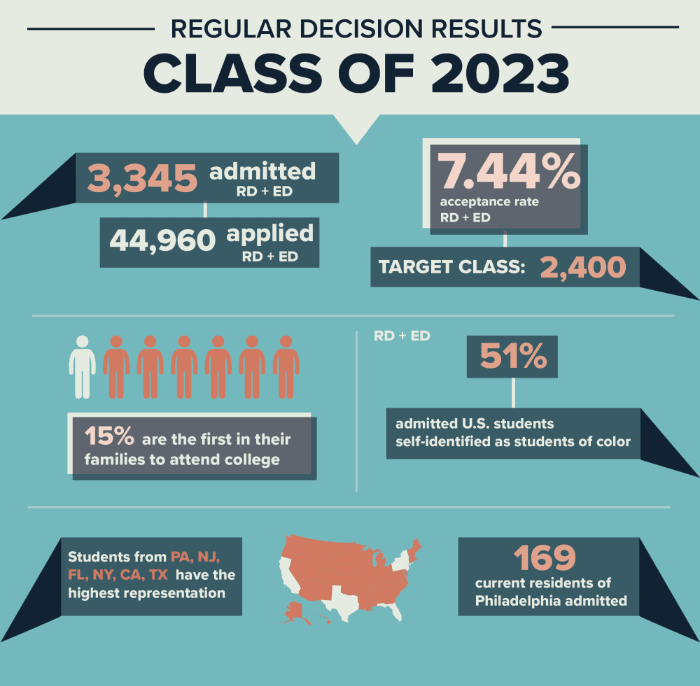The Evolving Landscape Of College Admissions: Standards, Diversity, And The Future

Table of Contents
Shifting Standards in College Admissions
The traditional college admissions process, heavily reliant on GPA and standardized test scores, is rapidly changing. A more holistic approach is gaining prominence, acknowledging the multifaceted nature of a successful applicant.
The Rise of Holistic Review
Holistic review considers a broader range of factors beyond academic performance. Colleges are increasingly recognizing the importance of:
- Extracurricular activities demonstrating leadership and commitment.
- Essays revealing personal qualities, experiences, and aspirations.
- Letters of recommendation providing insights from teachers, counselors, and mentors.
- Community service and engagement showcasing social responsibility.
- Unique talents and skills highlighting individual strengths.
Colleges are leveraging data analytics and AI to streamline the holistic review process, aiming for greater efficiency and fairness. However, the subjective nature of evaluating these diverse factors presents challenges, requiring careful calibration and ongoing refinement of assessment methods. The shift towards holistic review necessitates a more nuanced understanding of applicant profiles, moving beyond simple metrics to a comprehensive evaluation of potential.
The Impact of Standardized Testing
The role of standardized tests like the SAT and ACT in college admissions remains a subject of intense debate. The rise of test-optional and test-blind policies reflects growing concerns about the tests' predictive validity, fairness, and accessibility.
- Pros of Standardized Testing: Provides a standardized measure of academic achievement, allows for comparison across different high schools, and can be a factor in merit-based scholarships.
- Cons of Standardized Testing: May not accurately reflect a student's potential, can be biased against certain demographics, and can create undue stress and pressure on students.
Test-optional policies have led to increased applicant pools and a greater representation of underrepresented minorities. However, the impact on overall academic standards and the potential for increased competition remain areas of ongoing discussion. Socioeconomic factors significantly influence access to test preparation resources, further highlighting the complexities of standardized testing in the college admissions process.
Promoting Diversity and Inclusion in College Admissions
Diversity and inclusion are now central to the mission of many colleges and universities. However, the pursuit of these goals faces significant legal and practical challenges.
Affirmative Action and its Legal Challenges
Affirmative action policies, designed to increase representation of underrepresented groups, have been the subject of numerous legal battles.
- Arguments for Affirmative Action: Addresses historical and ongoing systemic inequalities, promotes diversity of thought and perspective, and enriches the educational experience for all students.
- Arguments against Affirmative Action: Can lead to reverse discrimination, may not be the most effective way to promote diversity, and raises questions of fairness and meritocracy.
Supreme Court decisions continue to shape the landscape of affirmative action, significantly influencing how colleges approach diversity initiatives. The ongoing legal and political debates underscore the complexity of achieving equitable representation while upholding principles of fairness and equal opportunity in higher education admissions.
Expanding Access for Underrepresented Students
Colleges are implementing various initiatives to expand access for students from underrepresented backgrounds, including:
- Early college programs offering college credit while still in high school.
- Need-based financial aid and scholarships addressing financial barriers.
- Mentorship programs providing guidance and support throughout the application process.
- Targeted outreach and recruitment efforts reaching underrepresented communities.
- Support systems such as tutoring, academic advising, and counseling, ensuring student success once enrolled.
These programs play a crucial role in ensuring that talented students from all backgrounds have the opportunity to pursue higher education. Mentorship and ongoing support are vital in helping underrepresented students navigate the challenges of college and succeed academically.
The Future of College Admissions: Emerging Trends
Technology and evolving societal concerns are reshaping the future of college admissions.
The Role of Technology
Technology is increasingly integrated into the admissions process:
- Online application portals streamlining the application process.
- Virtual campus tours offering prospective students a glimpse of college life.
- AI-powered tools assisting with application review and processing.
- Digital portfolios showcasing student work and achievements.
While technology offers potential benefits in terms of efficiency and accessibility, concerns about bias in algorithms, digital equity, and data privacy must be addressed. Ensuring equitable access to technology and mitigating potential biases are crucial in harnessing the power of technology while maintaining fairness and inclusivity in college admissions.
Addressing the Mental Health Crisis
The rising awareness of mental health issues among college applicants is prompting colleges to adopt more compassionate and supportive admissions processes.
- Providing resources and information about mental health support services.
- Training admissions staff to recognize signs of mental health challenges.
- Developing more flexible and understanding application processes.
- Using essays and interviews to assess a candidate's emotional resilience and coping mechanisms.
Colleges are recognizing that emotional well-being is a critical aspect of student success. A holistic review process that includes attention to mental health promotes a more supportive and inclusive environment for all applicants.
Conclusion
The landscape of college admissions is constantly evolving, driven by shifting standards, a heightened focus on diversity and inclusion, and the influence of technology. The move towards holistic review, the ongoing debate surrounding standardized testing, and the increasing emphasis on mental health highlight the complexities of this process. Understanding these changes is crucial for both students and institutions. By embracing innovative approaches and addressing challenges proactively, we can work toward creating a more equitable and accessible college application process and higher education admissions system for all. Stay informed about the latest trends and contribute to shaping a more equitable and accessible system for all.

Featured Posts
-
 Conoce A Los Aspirantes A Diputados De Rescate Y Transformacion En Cortes
May 19, 2025
Conoce A Los Aspirantes A Diputados De Rescate Y Transformacion En Cortes
May 19, 2025 -
 Canadas Stance On Us Tariffs A Rebuttal To Oxford Research
May 19, 2025
Canadas Stance On Us Tariffs A Rebuttal To Oxford Research
May 19, 2025 -
 Experience The Richness Of Sun Kissed Minervois Wines Quality And Value Combined
May 19, 2025
Experience The Richness Of Sun Kissed Minervois Wines Quality And Value Combined
May 19, 2025 -
 Southaven Mayoral Election De Soto County Voters Head To The Polls
May 19, 2025
Southaven Mayoral Election De Soto County Voters Head To The Polls
May 19, 2025 -
 Analyzing The Euros Rise Insights From Swissquote Bank
May 19, 2025
Analyzing The Euros Rise Insights From Swissquote Bank
May 19, 2025
